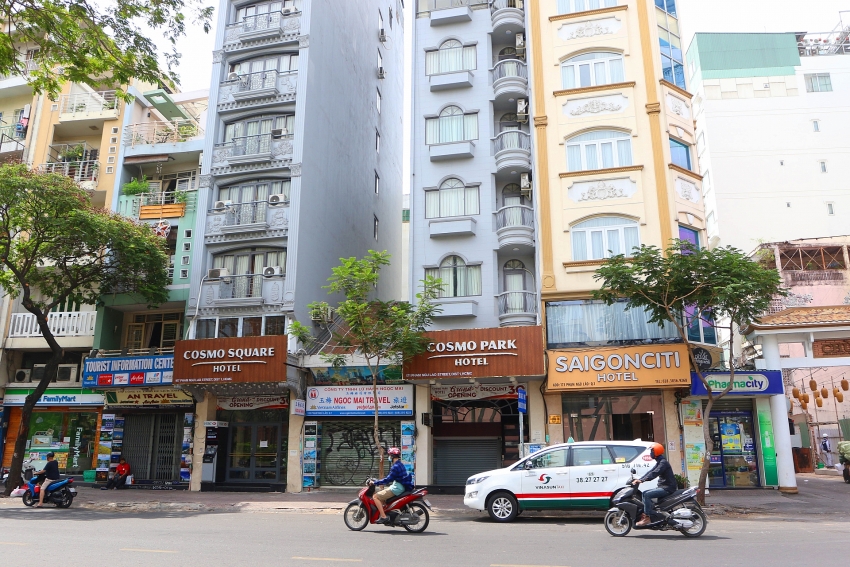Asian hotel investors pivot to debt financing as owners look to shore up balance sheets
According to JLL, the impact of COVID-19 on the hotel and hospitality industry across Asia continues to be significant, with many hotels and investors witnessing an unparalleled cash crunch as significantly constrained revenues struggle to offset fixed costs.
 |
| Hotel chains in Vietnam also face difficulties caused by COVID-19 (Photo Le Toan) |
According to Adam Bury, executive vice president and Corey Hamabata, senior vice president of JLL’s Hotels & Hospitality Group, travel restrictions are forcing owners to look at an array of short-term financing options but with abundant investment capital still available to be deployed, this temporary dislocation is expected to also create new opportunities.
JLL expects debt financing solutions are most likely to be needed in the resort markets of Southeast Asia, including Thailand, Indonesia, and Vietnam, as well as pure tourism destinations such as the Maldives.
In some instances, these countries already experienced a lack of liquidity within the banking sector, relatively high-interest rates and a reliance on international travel, which is likely to be the slowest to rebound post-COVID-19.
"We expect strong owners and sponsors to be able to refinance their positions, though anticipate short-term funding requirements in a number of markets. Where these short-term fixes can’t be achieved, there is potential for distressed assets to come to market in the second half of 2020. Post-COVID, we will likely see limiting of future new supply and firming up of balance sheets of those who are able to survive the downturn, ultimately resulting in stronger fundamentals for the industry going forward,” said Bury.
In Asia, only a select few destinations and properties are achieving meaningful demand often by providing quarantine facilities or accommodations to support other government initiatives.
At these levels, hotels struggle to break even, much less cover their debt service obligations, leaving owners to fill the gaps. As the hotel industry is typically the fastest to react to demand shocks and also the quickest to recover, certain owners are looking for near-term solutions to bridge cash flow until travel, hotel demand, and revenues return.
Despite short-term measures including furloughing staff or accepting quarantined guests, much of the industry is operating with insufficient cash flows to cover existing obligations.
According to JLL’s analysis, signs of stress are likely to emerge within capital stacks with traditional lending channels possibly curtailed.
“Through our conversations with owners and lenders across the region, we see concerted efforts to mitigate the potential for loan default, or worse. Many owners are immediately seeking additional credit lines in order to stabilise their businesses and temper the downturn until demand returns. Generally speaking, owners that are the most concerned are those in resort destinations, reliant on a high proportion of international guests – a segment which many are assuming will be the slowest to recover post-COVID-19,” said Bury.
With the banking sector cautious of amplifying an already difficult situation, there has been a willingness amongst lenders to consider forbearance or restructuring of loans, including the provision of short-term grace periods.
However, in the current environment, traditional lenders may be less likely to materially increase their funding on these non-performing loans to cover longer-term shortfalls. Whilst it may be too soon to determine the eventual recovery period for the hotel industry, short-term grace periods may simply not be enough to help many owners navigate the current situation and additional capital will likely be needed to fill the gap.
The increased demand for hotel lending comes at a time when similar requests are being made from numerous sectors facing working capital challenges and traditional lenders are cautious of heightened exposure to more volatile sectors.
Despite an expected pullback in lending and after an unprecedented $12.7 billion of hotel transactions in the Asia-Pacific during 2019, there remains an abundance and range of capital looking to own and/or acquire high-quality hotel assets, which will lend some support to asset prices in the medium-term.
According to JLL, these diverging factors have created a rift in the capital stack, which is expected to be filled by debt funds and non-traditional lenders, who have the flexibility to look beyond the interim cash flow disruption and lend on resilient asset values and other collateral.
“Given the substantial funding requirements in the hotel sector, we have seen a pivot in investor activity towards the lending space, including from private equity groups and family offices, complementing the existing volume of capital already in the market from traditional debt funds. While traditionally more expensive, these capital providers are able to act quickly and flexibly in order to fill the void with typically shorter-term solutions to provide a bridge until a time when the loan can be replaced with more permanent financing or the asset can be divested at more reasonable pricing,” said Hamabata
What the stars mean:
★ Poor ★ ★ Promising ★★★ Good ★★★★ Very good ★★★★★ Exceptional
Related Contents
Latest News
More News
- Vietnamese businesses diversify amid global trade shifts (February 03, 2026 | 17:18)
- Consumer finance sector posts sharp profit growth (February 03, 2026 | 13:05)
- Vietnam and US to launch sixth trade negotiation round (January 30, 2026 | 15:19)
- NAB Innovation Centre underscores Vietnam’s appeal for tech investment (January 30, 2026 | 11:16)
- Vietnam moves towards market-based fuel management with E10 rollout (January 30, 2026 | 11:10)
- Vietnam startup funding enters a period of capital reset (January 30, 2026 | 11:06)
- Vietnam strengthens public debt management with World Bank and IMF (January 30, 2026 | 11:00)
- PM inspects APEC 2027 project progress in An Giang province (January 29, 2026 | 09:00)
- Vietnam among the world’s top 15 trading nations (January 28, 2026 | 17:12)
- Vietnam accelerates preparations for arbitration centre linked to new financial hub (January 28, 2026 | 17:09)

 Tag:
Tag:























 Mobile Version
Mobile Version